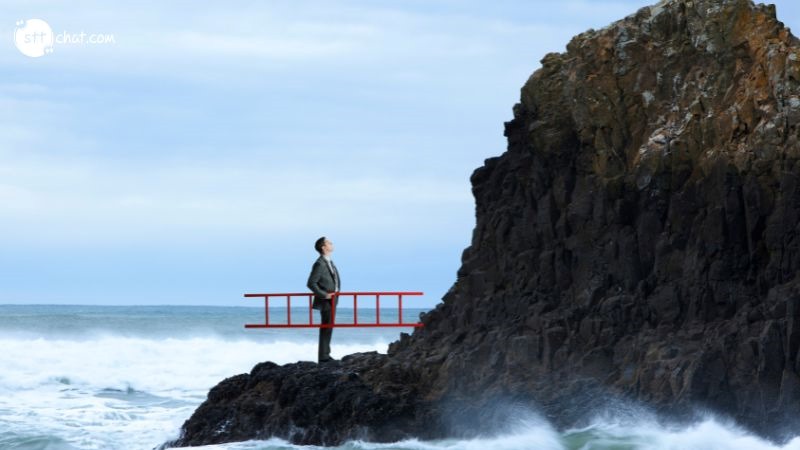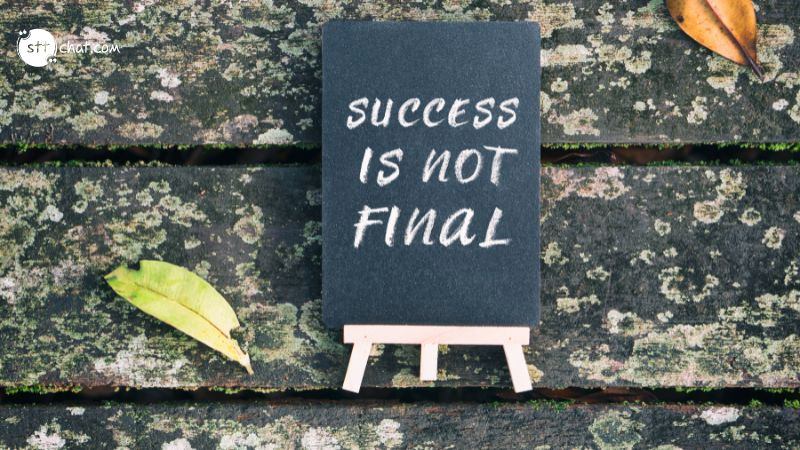Nothing makes me more nervous than people who say 'It can't happen'
-Margaret Atwood-
Margaret Atwood's quote, "Nothing makes me more nervous than people who say 'It can't happen'" encapsulates a profound cautionary stance. This statement is particularly poignant in an age where the unthinkable frequently materializes, altering our world in unpredictable ways. Let's delve into why such a mindset is nerve-wracking and explore the implications across various domains, including technology, environment, politics, and social structures.
1. Nothing Makes Me More Nervous Than People Who Say It Can't Happen meaning
Complacency is a perilous state of mind. When people assert that something "can't happen," they often do so out of a misplaced sense of security or denial. History is replete with examples where improbable events have occurred, catching societies off guard.

Human beings usually create beyond what they think - Source: Internet
1.1.Technological Revolutions
Consider the advent of the internet. In the early 20th century, the concept of a global network connecting billions seemed implausible. Yet, by the late 20th century, the internet revolutionized communication, commerce, and culture. Those who dismissed its potential were left scrambling to catch up.
1.2.Environmental Catastrophes
The phrase “it can’t happen” is particularly dangerous when discussing environmental issues. Climate change is a prime example. Despite overwhelming scientific evidence, many still deny its existence or its potential catastrophic impact. The result is a delayed response to a crisis that is already unfolding, making mitigation efforts more challenging and costly.
1.3.Political Upheaval
Political stability is often taken for granted until it's disrupted. The Arab Spring, the fall of the Berlin Wall, and even the rise of populist movements in recent years demonstrate that political landscapes can shift rapidly and unexpectedly. Those who believed their political systems were immune to change were often the most shocked when upheaval occurred.
2.Adverse events may be happen
The tendency to believe that adverse events “can’t happen” is deeply rooted in human psychology. Cognitive biases like normalcy bias and confirmation bias play significant roles.

Say no with people think "It can't happen" when facing with adverse events - Source: Internet
2.1.Normalcy Bias
This bias leads people to believe that things will always function the way they normally do, underestimating both the possibility and impact of a disaster. For instance, many residents in areas prone to natural disasters like hurricanes or earthquakes live in a state of normalcy bias, often ill-prepared for the inevitable.
2.2.Confirmation Bias
People tend to seek out information that confirms their existing beliefs and ignore information that contradicts them. This bias can lead to a dangerous dismissal of warning signs and expert advice, further entrenching the belief that certain events “can’t happen.”
3.Consequences of Ignorance
The refusal to acknowledge the potential for disruptive events can have dire consequences. Here are a few examples of how this mindset can be detrimental:
3.1.Public Health Crises
The COVID-19 pandemic is a stark reminder of the consequences of underestimating potential threats. Early warnings about the virus were ignored or downplayed by many, leading to a global health crisis that could have been mitigated with earlier, decisive action.
3.2.Economic Collapse
Financial markets are often seen as robust and self-correcting, yet history has shown otherwise. The 2008 financial crisis caught many off guard, despite numerous warning signs. The belief that a collapse “couldn’t happen” led to insufficient safeguards and regulatory oversight.
3.3.Technological Risks
As we venture into new technological territories, including artificial intelligence and genetic engineering, the belief that negative outcomes “can’t happen” can prevent the establishment of necessary ethical and safety standards. Ignoring potential risks can lead to catastrophic consequences, from AI misalignment to unintended genetic mutations.
4.Belief on whatever can happen
Acknowledging that unlikely events can and do happen is the first step towards preparedness and resilience. Vigilance, adaptability, and a proactive stance are crucial in navigating an uncertain world.
4.1.Scenario Planning and Education and Awareness
Organizations and governments must engage in scenario planning, considering even low-probability but high-impact events. This helps in developing strategies that can be swiftly implemented when such events occur. Public education campaigns can help combat cognitive biases and encourage a culture of preparedness. Awareness programs about climate change, public health, and technological risks can empower individuals to take informed actions.
4.2.Policy and Regulation
Robust policies and regulations are necessary to mitigate risks. This includes environmental regulations, financial safeguards, and ethical guidelines for emerging technologies. Policymakers must adopt a forward-thinking approach, anticipating potential challenges rather than reacting to them.
Conclusion
Margaret Atwood’s warning about the dangers of believing that certain events “can’t happen” is a powerful reminder of the need for constant vigilance. History teaches us that the improbable is not impossible, and in many cases, it is the unlikely events that shape our future most profoundly. By acknowledging the potential for disruption and preparing accordingly, we can build more resilient societies capable of thriving in an unpredictable world. Embracing uncertainty and preparing for the unexpected is not just wise but essential for progress and survival.






